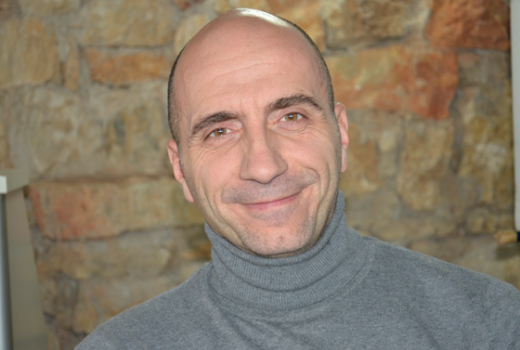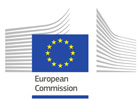Language Barriers and Governments Lower Information Flow on the Internet

Language Barriers and Governments Lower Information Flow on the Internet
10/02/2016
Digital communication strategist Gillo Cutrupi warned that there is too much noise on the Internet and that is lowering information flow.
Photo: Hilma Unkic
A lot of information remains buried on the Internet, especially in the countries where people don’t speak English and where what remains in local languages is often controlled by the government, argues the Italian digital media expert and digital security trainer, Gillo Cutrupi.
Working with activists and human rights groups for over fifteen years, he has also coached a number of NGOs and researched and developed innovative tactics and tools for community building. He has also been working with Tactical Tech, a non-profit organisation focused on advancing the use of information and digital technologies by advocates and activists worldwide.
Cutrupi manages digital campaigns for several middle and large-sized organisations around the world, such as Greenpeace International, Doctors Without Borders and Amnesty International. Cutrupi spoke to Media.ba about today’s biggest threats to unobstructed flow of digital information and how every activist, organisation and journalist can strengthen the civil society sector.
What is the main barrier standing between truthful and useful information and civil society?
All the organisations and unions we work with, or even individuals and activists – they all produce information and communicate with digital media. A lot of them don’t know how to protect those information, and how to distribute them. So, the work that we do, is to tell them how to use information better. Sometimes they don’t know where to search, they are not aware of that process. Actually, they understand the importance of information and they will go through basic research steps, but what we teach them is how to go a little deeper. During trainings, we discuss doxing and procedures. By doxing I mean deep research on individuals or subjects that cannot be done only by using of search engines, but also using databases and other tools is needed, and this is important because these are the basics for the proper investigation for any kind of articles or other content. This is the initial work that organisations, unions and journalists have to do. Some of them are already aware of that issue, some aren’t – it depends on resources. Nowadays, the internet penetration is huge, considering that people in some countries in Africa or Southeast Asia, cannot connect to the network with normal landline, but there is a good penetration of mobile phones, so another process is to tell them how to use those to get information. There is always a limitation of time since we are an NGO. We are all professionals but still, working with organisations means we never have enough time to work with a specific group, specific activist and to support them. We do what we can, but they need a lot of self-education as well. We can give the first spark and raise awareness but eventually it’s all practice.
What makes one organisation or union more efficient than another and what are the steps from small local NGO to the large and recognized international organisation?
Established organisations like Greenpeace, Doctors Without Borders and Amnesty International have a lot of resources behind them. They are all organisations that will never fail because their infrastructure, in terms of departments, is really strong - they can hire professionals and they have more financial resources than small organisations in Africa, for example. Yes, at the beginning they were all really small, but it’s also true that when they started with the work in the 70’s or in the 80’s, the civil society has practically not existed, so they were a new element. People were very willing to support organisations that raise the environmental or human rights issues. Today, the number of organisations working on these issues is enormous and it’s very difficult for one to become as popular as Greenpeace in the environmental sector because they are already established. However, what becomes very relevant is what is happening on local level because large organisations cannot really operate on micro-level of cities or regions. And that’s where, I think, small organisations should focus more. Because it’s very difficult now, it’s practically impossible, to become a new very large organisation. There is no more space for that. But you can be a very efficient organisation at a regional or local level. Focus should be on their dynamic nature, because one of the issues that large organisations have is a slower decision making process. If large groups go through this process they need to reach a consensus or on some other way they have to involve large number of stakeholders. That’s why they work on campaigns for years. So, there is an advantage to being small. One of the aspects that is always needed are contacts, relationships with authorities and with journalists on a local level. If you don’t have these kind of contacts, it’s always very difficult to operate and you are practically invisible. The level of advocacy that you have to do is really strong and it means working on the basics – in the schools, with the freelancers.
Could networking be helpful to organisations in reaching their goals, and why is there still a resistance among NGOs to go through this process?
It is a matter of being afraid of creating shared working space for the common goals, because each organisation has its own identity and it’s really good for each one of them to keep that identity. But, it becomes really unsuccessful if everybody does different piece of work. It is unfortunately part of the organisation's nature to create an obstacle in helping each other because small groups are very proud of what they build. At the end of the day this is what they do - they create reality out of nothing, so that kind of identity is very important. But sometimes they should be aware that they will never be able to win a campaign on their own. The benefit of networking is not only financial, it also brings together contacts and human resources. Organisation that works in Sarajevo on human rights issues can be a partner with another organisation that works on similar issues in Mostar. We have to face reality – if there is someone in jail, for example, and you want to bring them out, you need a lot of supporters. If you work separately, you probably won't achieve much.
How can journalists and civil society join forces to engage the public with relevant information?
Journalists as well need their profile. Article that is published by only one journalist means credibility for that journalist and their curriculum. That's normal, and it's the reason why journalists do their work. But, there is also the fact that if the group of journalists manage to write about something and sign an article together, probably there are more possibilities that that article flies and gets alive and is more broadcasted. It is difficult, because everybody wants to do their own specific work. There are certain organisations that have a group of freelancers and other journalists and they try to communicate as one, even if they are individuals who operate differently. I think, this is the way where journalists can give contribution to civil society.
What causes low level of information flow in the digital media landscape?
First of all, I would say that the language is always a barrier – shared language on the internet is English. In many countries people don't know this language very well and they have problems in searching for information. Everything that they look for remains in their local language and that's why they don't manage to find resources outside. Also, in some countries media outlets and even websites are controlled by governments, so if I search for something in a specific language maybe I will just find information that that government wants me to know. So, the ideal way would be to search also in English, and I would say this is the basic that has to be done. There is also so much information that we are not aware of. There are so many efforts in the world to put data together, not only in the USA, and we are not proactively searching for them. The main problem is the fact that there is too much noise on the internet. So, we have to be smart and know how to use tools, communities, mailing lists and we have to go deeper into a specific problem and try to really reduce the noise that is irrelevant.
 This article was published in partnership with the Osservatorio Balcani e Caucaso for the project of European Centre for Press and Media Freedom (ECPMF) and co-financed by the European Commission. The authors of the publication are responsible for its content and the views expressed in it in no way reflect the views of the European Commission.
This article was published in partnership with the Osservatorio Balcani e Caucaso for the project of European Centre for Press and Media Freedom (ECPMF) and co-financed by the European Commission. The authors of the publication are responsible for its content and the views expressed in it in no way reflect the views of the European Commission.



